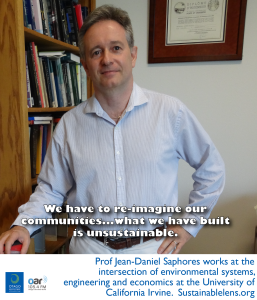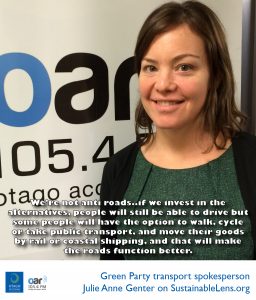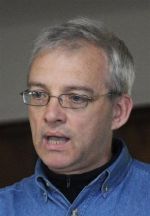Skye Duncan is an urban designer who is the Director of the Global Designing Cities Initiative at the National Association of City Transportation Officials (NACTO) where she has been leading a multi-year program funded by Bloomberg Philanthropies to develop the new Global Street Design Guide. We talk about changing the narrative to a people centred urban design.
Talking points
I realised a passion for urban scale – designing cities
Urban design is really thinking about cities. Taking bits of the languages of architecture, planning, landscape architecture, policy… and pulling all these aspects together and understanding as a designer, how can you try and have a positive impact – whether it’s environmentally, economically, socially, overall livability.
The design decisions we make from the angle of a park bench…to entire neighbourhood to city-wide policy around public health and environment – you learn to speak a bit of each of the languages.  You need to know a little bit, and when to pull the right person in around the table to make responsible decisions about the future environments that we’re all living in and what we leave for our next generations. .
Looking at how the people use a space tells you 90% of what you need to know….desire lines, goat trails. Signals in the built environment – signals for how people want to use a space.
It is important that we listen to local expertise. We can come in with professional expertise, this is what we know is best practice, this is what is done around the world. But we don’t live on that street, or send our kids to that school. So understanding what the needs are from that community.
Our streets are our largest public continuous public spaces, but we have applied highway codes – moving cars as quickly as possible – to communities. We want our cities and urban spaces to be about people, not about cars.
Guidelines created for cities by cities.
The streets are a contested space but we’ve had the car at the heart of policy decisions.  Now we have a people priority approach.
An inverted hierarchical pyramid.  The car has been king, now the pedestrian is the queen or king of the public space. Then to prioritise sustainable mobility choices- cycling and transit. Then making sure we can deliver goods. And then, when we have space, we give that space to the private car.  This is, of course, highly controversial.
(how do you overcome might is right, speed is right?) Pretty basic: talk about numbers…people die from the speed of our streets. We have the power to avoid that, it’s totally preventable.  Then the environmental side of it.  Physical activity.
One of the most powerful numbers is to talk about the efficiency of space. Private cars is the least efficient way that we can move people.
We’re all tax payers, but it’s only serving one user – the person in the car.
New canvas for urban life.
Empowering communities to know what to ask for.
We have to give people an alternative. Tipping point of utility.
The bulk of our built environments are already there. So if we don’t go back and ask how are we going to transform those things, we’re going to be in serious trouble.
We have to go back and rethink, redesign our current swathes of asphalt.
Ask what’s possible, and if you have the power to change it, do it.  If you can demand or advocate for something more from your street then do it.
Lowering stress about change.
We have to give people an alternative, if we want to say people should leave their car at home, we have to make sure they have access to things like car share, bike share, e-bike share. It’s not about not using cars, just not for every trip. If we can make it safe to walk to school or the supermarket or visit friends, then we can think about the streets in a different way.
It’s not a matter of if anymore, it’s a matter of when.
Dunedin should be going out and showing how it is done.  This is how we can transform great little cities.
Be proactive, what do we want to become…then design systems to support that.
As communities we have to be proactive and say what do we want to become, how do we protect and enhance what we love and what’s great, and how do we improve what’s not so great. And then where are the impediments that are stopping us getting there. Some of them are political, some are detailed policies, some are in changing mindsets – its all of those, and then we can identify how we’re going to get there.
Speak out about it. Write a letter, speak to politicians – tell them this is the sort of stuff we would love to see in our community.
Sustainable:Â A holistic (Brundtland), not the greenwashing version.
Success: The Global Street Design Guide. An incredible feeling.
Superpower:  Empowering other people to see what is possible. Magic glasses.
Activist: Kind of, not in traditional sense, but it’s important to keep challenging the status quo.
Motivation: A better world. Seeing and feeling change quite immediately.
Challenges: A book supplement – streets for kids. And meeting demand since the book was released.
Miracle: Go back to the magic glasses, see the potential. Every mayor, councillor, city manager…see the potential and understand what they could do to change that so that they feel empowered how to make a difference.
Advice: Open your eyes, be open to change. Then try and find a way to make your voice heard. We don’t hear enough positive voices. Take five minutes to think of one thing that you could do in your daily action – professional or not – that would make a difference. Maybe a phone call or a request, or if you’re a designer, drawing something slightly differently.  Remind ourselves – it seems so basic – our cities are for people.



